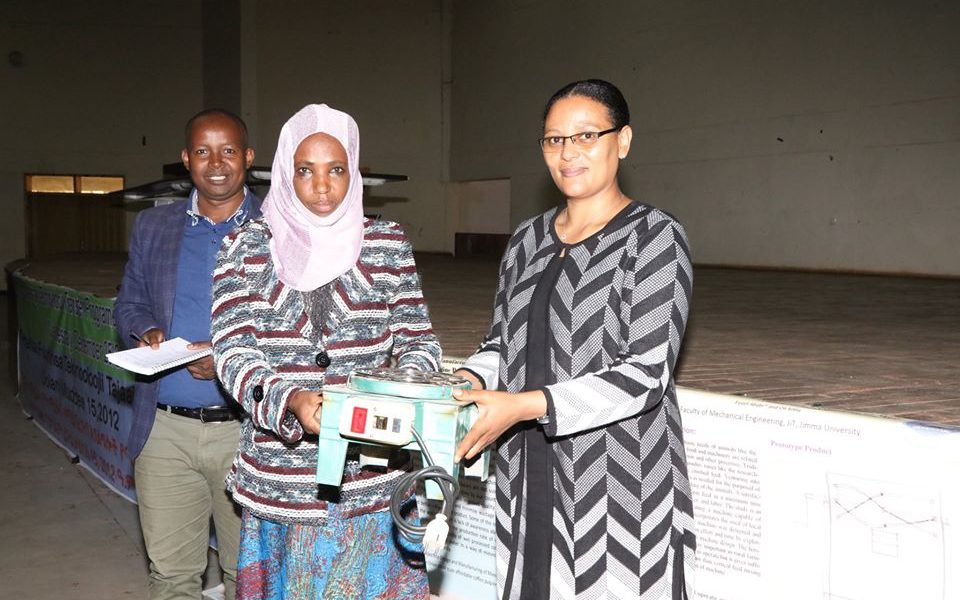Jimma University has been extensively engaged in the provision of a wide array of community services through a better coordination of scientific products with community’s priority needs. The University provides a lot of community services in agriculture, health, education, social, legal and different socioeconomic activities. In 2018/29, the university has approved over 20 community service projects with a potential of solving priority community problems in various development sectors.
As part of this mission, the office of Community Service and Engagement (CSE) of the University has delivered four community service projects (technologies) to the target beneficiaries on December 25, 2019. These projects are aimed to improve the socioeconomic conditions of the local communities as well as local institutions serving the wider communities.
Accordingly, eight institutional improved wood burning stoves were designed, fabricated and distributed to organizations using mass feeding, namely Jimma correctional center (prison) and “Merab ezi”’. Electric cook stoves were similarly designed, fabricated and distributed to 51 economically disadvantaged women having no access to improved cooking stoves. Two of the projects focus on improving health delivery and education through appropriately designed and customized software applications. The software on health service delivery is customized with built-in applications helping to monitor patient’s condition and improve record keeping. The education assisting software allows students and teachers as well as the school management to have access to digital library and digitized students’ record keeping.
The technology transfer ceremony begun by opening speech made by Dr. Tsige Ketema, vice president for research and community services. During her speech, Dr. Tsige stressed on the wide and ever increasing community services given by JU in agriculture, technology, health, social services and improvement in socioeconomic activities. She also tried to indicate the JU’s strategically planned interlinking research, technology transfer and community service activities to alleviate priority community’s problems.
Following Dr. Tsige’s remark, Mr. Abebe Wolie, director for technology transfer and University industrial linkage, tried to explain how produced technologies are linked to community service activities and become part of the solution. The transfer ceremony was followed by project owner’s brief description on their products, on how to use and its special features. Following the transfer of the products, beneficiaries were reflected on the potential impacts of the services on local community’s livelihood as well as service provision, and warmly acknowledged JU.
Finally, Dr. Gudina Terefe, Director for community services and engagement, appreciated JU’s instructors involved in the projects and became part of the solutions for community’s problems. In his speech, Dr. Gudina provided a brief description of the community service projects funded by JU in 2011 and 2012 E.C. He noted that JU has funded 21 projects in 2011 and 15 projects in 2012 e.c for various priority community problems and promised to continue with more projects in the coming years. Finally, he called up on the project beneficiaries and other stakeholders for future collaboration and engagement.
We are in the Community!


